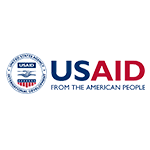Supporting Child Feeding During and After Illness in Guatemala
HIGHLIGHTS
- In Guatemala, young children often consume a smaller quantity of food and less nutrient-dense foods during periods of illness, increasing the risk of malnutrition.
- With Breakthrough ACTION, we used behavioral design to develop solutions that support families so they can continue feeding their young children during and following illness.
The Challenge
Young children experiencing illness require adequate nutrition to recover and avoid malnutrition. Global evidence shows that children’s growth deteriorates rapidly during and after illness if foods and feeding practices do not meet the additional nutrient requirements associated with illness. Global guidance suggests children aged six to 23 months should continue to eat and breastfeed as much as possible during illness, and they should consume more than usual in the two weeks following illness.
In many settings, however, young children consume far less than needed during these critical moments. In Guatemala, research suggests that young children often consume a smaller quantity of food and less nutrient-dense foods during periods of illness, and rarely consume extra food during the two weeks following illness. In close collaboration with caregivers, health providers, programmers, and nutrition researchers in Guatemala, Breakthrough ACTION used behavioral design to develop solutions that support families so they can continue feeding their young children during and following illness.
Our Approach
Breakthrough ACTION built upon a behavioral design process conducted in the Democratic Republic of the Congo (DRC) that explored the behavioral factors that prevent caregivers from feeding their children according to recommendations. The DRC design process ultimately led to solutions that encourage improvements in feeding during and after illness. Read more about these insights and solutions in the behavioral solutions to child feeding during and after illness brief.
Through a desk review and expert interviews, ideas42 adapted the DRC insights to the Guatemalan context, identifying similarities and points of divergence from the original findings. The insights were then validated and refined with health providers and community members during a co-design workshop and translated into concrete objectives for program design.
Results
As a result of the co-design workshop, ideas42 developed two solutions for integration into existing programs that support caregivers of six- to 23-month-old children to continue to breastfeed and feed children during illness, and to feed them more in the two weeks after illness. This includes:
- “Foods to fight against illness”(¡Alimentalos para luchar contra la enfermedad!: An interactive group activity to build caregivers’ understanding as to why children need food and energy to fight and recover from illness and helps them identify nutrient-dense options for feeding their sick and recovering children.
- Support your family module (Apoya a tu familia): A facility activity conducted by community facilitators during existing group meetings which aim to alleviate mothers’ cognitive and time scarcity by emphasizing the ways grandmothers can support their families and create more opportunities for their daughter/daughter-in-law to focus on feeding when a grandchild is sick.
The solutions were implemented in 10 municipalities in Guatemala and were well-received by implementers and participants. Mothers and grandmothers found the sessions dynamic and understandable and built knowledge and confidence through the activities.
Takeaway
These solutions address the underlying behavioral drivers of feeding practices during illness and during the two-week recuperation period. This activity demonstrates the power of understanding the underlying aspects of the context that drive behavior. While the challenge seemed similar in the DRC and Guatemala, uncovering the underlying environment and context led to meaningful and community driven changes to the designs.The designs emphasize increasing the time and mental resources caregivers have to feed sick and recovering children. This includes leveraging grandmothers and the important role they play supporting their family and empowering caregivers to take action to help their child recover.
Interested in our work applying behavioral science to global health? Email health@ideas42.org or reach out to us on LinkedIn.





